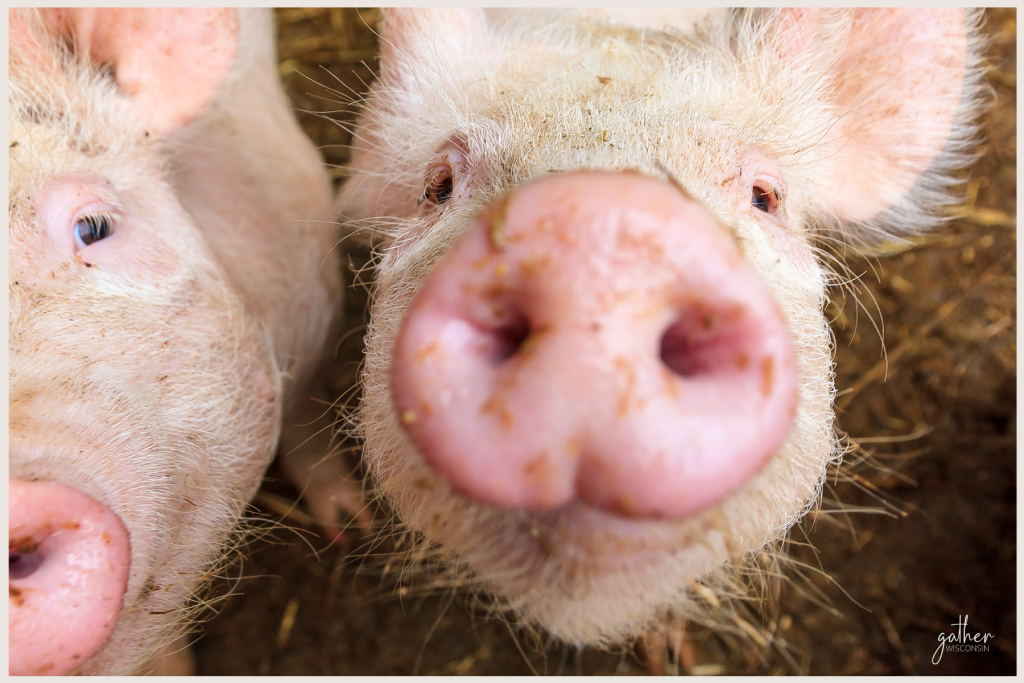Fall is here and is ushering in all of the seasonal favorites – pumpkin spice lattes, apple picking, football season and National Pork Month! Whether you are tuning in to your favorite team from home, tailgating with friends and family in a college town on a Saturday or visiting a local establishment to cheer with your community on a Sunday, nothing goes together like pigskin and Wisconsin pork! Football games and good food bring us all together, and those gatherings often center around a grill or smoker featuring exceptional quality cuts of meat from a Wisconsin farmer.
As you are eagerly anticipating your rack of ribs to come off the smoker or pulled pork out of the crock pot, you can be certain that the pork you enjoy meets the highest standards for animal and environmental care.

Pig farmers are committed to a sustainable future. Their livelihood is tied directly to the land, water and air, and they take on the great responsibility in protecting their natural resources.
Farmers across the nation are proud to be producing more pork than ever before with less inputs. Over the past 50 years, pig farmers have reduced their environmental impact by using 75.9% less land, 25.1% less water, 7% less energy and 7.7% lower carbon emissions per pound of pork.
Pig manure can be used as valuable fertilizer that helps to increase soil diversity. Farmers work with researchers to develop the best methods for applying manure to their fields such as soil sampling, GPS tracking and diet adjustments to meet the pig’s nutritional needs while reducing manure output.
Pig farmers work hard to manage air quality and minimize odors coming from their farms. They want to be good neighbors and stewards in their communities so they will often let the community know when they are spreading manure or avoid spreading on weekends to manage smells during events and gatherings. They also plant trees and shrubs as windbreaks so the manure’s smell does not drift into the community.
Clean water is essential to raising healthy pigs and farmers are held to a high standard for maintaining water quality. Drinking systems account for the majority of the water use on a pig farm. Swine farming uses 25% less water than 20 years ago due to improved facility management and waterer design.

Pigs are excellent recyclers and can consume the leftovers from food production or food waste. Pigs and livestock are part of the food waste solution, turning unusable food products into high-quality protein for us to enjoy.
Whether you are enjoying BBQ ribs at a football tailgate or pork chops during family dinner, you can feel confident that the meat you are consuming comes from the best pork in the world – raised with sustainability and animal care as a top priority. How will you enjoy pork this October?

